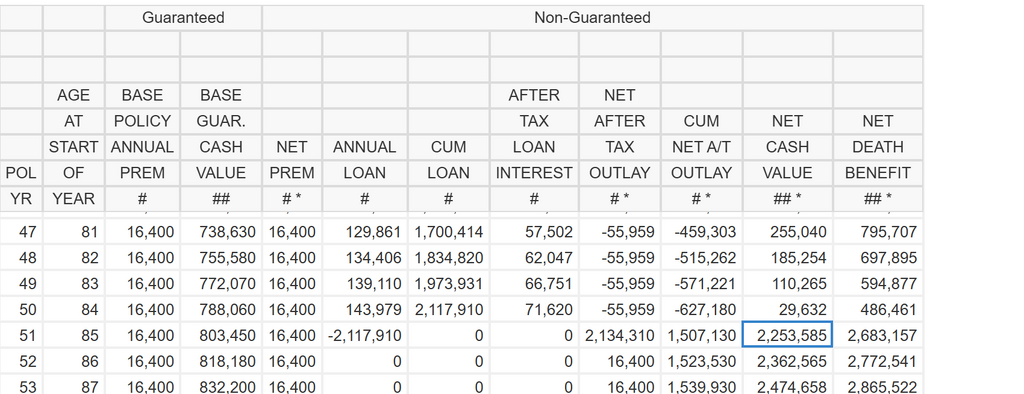- 11,474
There are multiple ways to use collateral.
Only with whole life insurance will the lender guarantee the performance of the asset they are lending against.
That's not possible with real estate with either a conventional 1st mortgage, reverse mortgage, or commercial mortgage. Of course a conventional 1st mortgage and commercial mortgages on a business require payments.
A margin loan could possibly be used, but only against eligible securities and can be subject to a margin call if the value of those securities falls below acceptable levels with the loan against it.
Regarding loan interest being paid back to you - I never make that claim. Paying loan interest on a life policy is just like paying any interest on any other bank loan (although unstructured and favorable terms) while you also happen to own stock in that bank that pays dividends. Too many times it's conflated and I don't think its right or a proper representation of whole life insurance... but it's done all the time.
With IUL, even a "no cost wash loan" (borrow at 2% fixed cost while the collateralized portion earns 2% to "wash out") you lose out on indexed earnings on the collateralized portion of the policy.
I've heard that Ameritus IUL doesn't do that, but I haven't verified. Even if they do, the insurance company must always be made whole. When there's a great deal, something else has to give. So if it's true, it may not perform nearly as well as other companies that don't offer that.
There's always a cost somewhere with any policy being used for lending purposes.
Only with whole life insurance will the lender guarantee the performance of the asset they are lending against.
That's not possible with real estate with either a conventional 1st mortgage, reverse mortgage, or commercial mortgage. Of course a conventional 1st mortgage and commercial mortgages on a business require payments.
A margin loan could possibly be used, but only against eligible securities and can be subject to a margin call if the value of those securities falls below acceptable levels with the loan against it.
Regarding loan interest being paid back to you - I never make that claim. Paying loan interest on a life policy is just like paying any interest on any other bank loan (although unstructured and favorable terms) while you also happen to own stock in that bank that pays dividends. Too many times it's conflated and I don't think its right or a proper representation of whole life insurance... but it's done all the time.
With IUL, even a "no cost wash loan" (borrow at 2% fixed cost while the collateralized portion earns 2% to "wash out") you lose out on indexed earnings on the collateralized portion of the policy.
I've heard that Ameritus IUL doesn't do that, but I haven't verified. Even if they do, the insurance company must always be made whole. When there's a great deal, something else has to give. So if it's true, it may not perform nearly as well as other companies that don't offer that.
There's always a cost somewhere with any policy being used for lending purposes.

